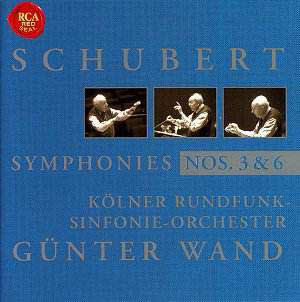|
|
Search MusicWeb Here |
|
 |
||
|
Founder:
Len Mullenger (1942-2025) Editor
in Chief:John Quinn
|
|
|
Search MusicWeb Here |
|
 |
||
|
Founder:
Len Mullenger (1942-2025) Editor
in Chief:John Quinn
|
 |
Franz SCHUBERT (1797-1828) |
|
AmazonUK AmazonUS |
|
The earlier Schubert symphonies, nos. 1-6 that is, are on the scale of Mozart rather than of Beethoven. No problem with that of course, nor is their mastery in doubt. But we have to remember that these supremely fresh masterworks are the product of a teenage composer, and modelled on the Viennese classical style of the previous generation. In due course, Schubert would go forward and develop his own powerfully unique voice in the Unfinished Symphony (No. 8) and the Great C major (No. 9). |
|
Return to Index |